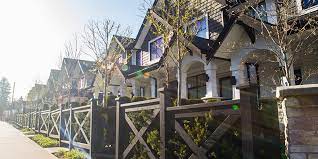A significant turning point for a business is locating its first commercial office space. But with so much to think about, the procedure might seem a little overwhelming.
Before you begin looking for commercial office space, this guide will provide you with all the information you require.
From determining when to start looking for new office space to estimating costs to getting ready for your move, we will walk you through every step of the process.
What is the Definition of a Commercial Office?
A commercial office is a building, other structures, and improvements situated on a piece of commercial real estate that are intended to make a profit. You can get ready to accurately price and develop a general procedure for your commercial office or property by touring various properties.
Note that:
- In urban areas, a commercial building may have offices from the 2nd floor to the 10th floor while retail stores remain on the 1st floor. These structures can be referred to as multi-use or multipurpose structures when significant space is allocated to multiple uses.
- A business must be situated in a commercial area or an area zoned at least partially for commerce; local authorities sometimes maintain strict regulations on commercial zoning and have the authority to designate any zoned area for commercial use only.
How Would You Describe a Commercial Space?
Based on a building’s appearance, age, amenities, and other infrastructures, office spaces can be described or divided into three classes.
#1. Class A Office Space
Class A offices are frequently brand-new construction or buildings that have undergone extensive renovations or improvements over time.
Therefore, buildings falling into this category are typically high caliber, situated in upscale neighborhoods in major cities, with the best architectural and aesthetic designs.
Furthermore, due to the high quality of the buildings, they are frequently leased by large corporations or conglomerates, and rental rates are generally high.
#2. Class B Office Space
Class B office spaces are usually older buildings that have been well-maintained.
Due to the average to above-average quality of the buildings, they tend to command average rental rates even though they are situated in some areas of the city that were once considered to be prime locations.
#3. Class C Office Space
Class C office buildings are more than 20 years old, have outdated designs, aesthetics, and general quality, and are frequently situated in unfavorable areas of the city.
Additionally, they have the lowest rental rates, take the longest to lease, are relatively few, are frequently sought after by start-up businesses, require extensive renovations or reconstruction, and are frequently targeted as redevelopment opportunities.
Features of a Commercial Office Space
You can concentrate on these features to guarantee that your office is ideal for getting the job done.
#1. Open Office Space
Open office space allows employees to move freely and communicate without fear of bumping into desks and filing cabinets, making for more open and easy communication.
#2. Good lighting
Lack of lighting can affect productivity and energy levels, so it is important to have ample overhead lighting, blinds over curtains, and a vibrant indoor plant garden.
#3. Colors
Color can enhance a work environment and make it more conducive to productivity.
#4. Cool temperature
Ensure a comfortable climate in the workspace to ensure productivity and happiness.
#5. Internet connection
The most important idea is to ensure an adequate internet connection throughout the office space, so employees don’t have to search for a corner to access it.
#6. Internal decoration
Decorations can be improved with the right objects, such as artwork, sculptures, and plants to break up wall space and add variety.
#7. Kitchen
A kitchen furnished with basic commodities can help keep employees hydrated and nourished, and provide a clean space to eat.
#8. Office Amenities
Employees should have a lounge area with a couch or two to encourage socialization and a large meeting or conference room with whiteboard space for brainstorming.
#9. Adaptive furniture
For staff to be happy and healthy, injuries must be kept to a minimum thanks to ergonomic or adaptive furniture.
#10. Electrical wiring
More electrical outlets are better than fewer in the office to avoid draping extension cords, which can hinder workplace activities and pose health and safety risks.
What is an Example of Commercial Space?
Examples of commercial space or property include, among other things, office buildings, hotels, hospitals, shopping centers, retail stores, multifamily housing structures, farmland, warehouses, and garages.
Many states consider a residential property with more than a certain number of units to be commercial property for taxation and borrowing money.
What are the Different Types of Office Space?
Various office spaces are classified based on their features. Some of them are:
#1. Multi-Dwelling Unit (MDU):
This includes residential properties such as condominiums and apartment buildings. For a commercial inspection of this type of property, you will need to examine more than one dwelling unit as well as possibly its common areas, which may include a shared pool and spa, and parking structure.
A home inspector may be familiar with the interior of each dwelling unit.
However, a home inspector will probably be more comfortable performing this kind of commercial inspection.
#2. Luxury Home:
Although a luxury home or estate is still considered a residential property, it may have been built with commercial purposes in mind.
It may also have features common to commercial buildings, such as sizable square footage, numerous HVAC systems, and commercial kitchen equipment.
For someone like a public figure or celebrity, this kind of property inspection may also call for you to exercise extreme discretion.
#3. Hotels and Lodgings:
This kind of property will consist of numerous separate residential units, much like a multi-dwelling unit. The main distinction is that lodging usually has a sizable commercial kitchen or on-site restaurant and is intended for short-term occupancy.
Note that you should check your E&O insurance policy before inspecting a commercial kitchen as these are frequently not covered by a home inspector’s insurance.
However, some accommodations may be suites with several rooms, a kitchenette and/or a wet bar, and perhaps even an in-room Jacuzzi or spa. There will probably be an elevator available.
#4. Restaurants and eateries:
Although the size and complexity of this kind of building will vary, it typically has a large kitchen with commercial appliances, a pantry or storage area, a refrigerated area (like a walk-in refrigerator and/or freezer), an office, a dining area, and public restrooms.
Check your E&O insurance policy before inspecting a restaurant because this type of establishment is frequently not covered by a home inspector’s insurance.
#5. Retail office:
Customers can purchase goods and/or services from this kind of property. One unit or a whole retail complex may be examined during an inspection of this type of property.
Most retail spaces have ample parking areas and bordering sidewalks, while some may have escalators, elevators, and covered parking structures.
#6. Traditional Office Space
This is the most typical kind of office space and has long been the best kind of office space. Cubicles, conference rooms, a reception area, private offices, break rooms, and a mailroom are all common elements of this office space.
Furthermore, legal services providers, IT companies, financial institutions, and other businesses frequently use traditional office spaces.
#7. Creative Office Space
The open layout of this kind of office space is a well-known characteristic. Fewer cubicles and walls between departments are one of the main goals of creative spaces, as are collaboration, transparency, ease of communication and creativity, unity, etc.
Wood floors, lofty ceilings, large windows that let in natural light, an employee kitchen and lounge, and smaller private offices are all characteristics of creative spaces, which are frequently used by tech companies and start-ups.
#8. Coworking Office Space
The most adaptable kind of office space is this one, and start-up businesses, independent contractors, and freelancers frequently use it to find flexible workspaces.
All other amenities, such as meeting rooms, break areas, and desks, are frequently shared by all tenants in co-working office spaces, which are typically several small, single spaces housed in a building and rented out to different people.
However, most rents are paid monthly, and offices come fully furnished.
#9. Executive Office Space
A coworking space with a more polished appearance and a reasonably low monthly rental fee is the executive suite office space.
Additionally, they frequently come fully furnished, pre-wired for phone and internet services, and equipped with a common conference room, break room, and reception area with a receptionist, making them ideal for executive offices and relieving their tenants of the stress of organizing.
#10. Flex Space
Businesses that require both an office space and a warehouse at the same location frequently seek out flexible office spaces.
As a result, the main office and warehouse will have separate entrances, and the warehouse, reception area, meeting room, accounting department, and so forth will all be located under one roof.
How to find a Commercial Office Space
#1. Find a good office space location.
Finding an office space in a good location for your business needs is key. It helps to weigh up the advantages and disadvantages of an office in the town center or one on the outskirts; look at transportation, cost, noise, visibility to customers, and surrounding amenities.
Researching the area surrounding an office can also help you decide if it is right for your business.
#2. Calculate how much you can afford to pay for an office.
Cost is a major factor when choosing an office space, so it is important to have a budget in mind and be realistic about what you can afford.
Therefore, you must Find a balance between cost and business needs to find the best office space for your company.
#3. Consider the type of space you require.
The most important details are to assess how many employees you have and how much space and equipment each person needs to comfortably perform their work, as well as rest areas, meeting rooms, and storage space.
Additionally, It is also important to consider future plans and the scalability of the office space and to consider short-term contracts to change office spaces as needs change. Accessibility is also important.
#4. Verify the terms of the office space lease.
Office space contracts vary depending on the type of property, building management company, and business needs. Short-term contracts offer more flexibility, while long-term leases require more financial stability.
Therefore, it is important to check the small print to see who is responsible for the building’s upkeep and whether you can alter the office space.
If you have any questions, contact the landlord or management company for clarification.
#5. Consider the amenities your office space should have.
It is important to consider the types of facilities an office space should have, such as lighting, heating, internet speed, furniture, meeting rooms, kitchen and washroom facilities, security, and business contents insurance.
Consequently, with such a variety of workspaces now available, start-ups and new businesses should be able to find the best one for their needs.
Is Commercial Space the same as Office Space?
Yes, commercial space is a space. an office space.
They have the same typical attributes like cubicles, individual offices for those in higher positions within the company, and conference or meeting rooms, which are likely to be found in commercial space used as office space.
Additionally, there might be a desk of some kind upfront so that someone can welcome clients and field their inquiries as soon as they walk in.
Furthermore, there are other uses for commercial space besides just offices. It is employed in hospitals, call centers, and some multi-tenant structures like apartment buildings.
Lastly, Commercial office space, however, may be more advantageous for your company if it relies less on foot traffic and instead conducts business via phone, email, or by setting up appointments with clients who then visit your location for a face-to-face meeting.
OFFICE LAYOUT: Meaning, Ideas & Guide
CHIEF OPERATING OFFICER: Understanding the Roles of a COO and Qualifications
Credit Card Machine: Top credit card for business in 2023
CONTENT MARKETING WORLD: Definition of Content, Research, Events, & Strategies in the CM World






